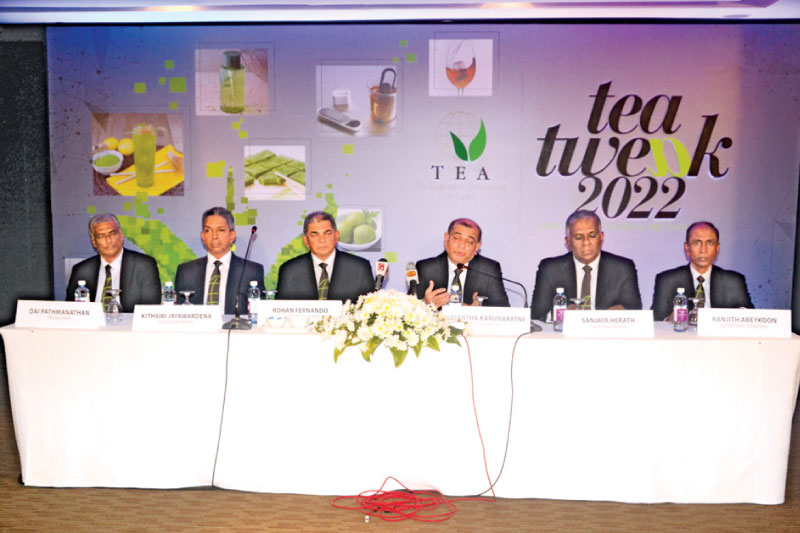The Tea Exports Association (TEA) lashed out at the government said that the government has politicized the tea industry and soon the industry would no longer be a major foreign exchange earner.
TEA officials at a special press conference at Cinnamon Grand prior to their Annual General Meeting under the theme ‘Tea Tweak 2020’ at Cinnamon Grand, said on Friday that the reason for the apparel sector to progress to great heights was that it does not have any government intervention nor does it have any state enterprises involved in exports.
“This is why you see greater value addition and in apparel sector and today even fabrics that were imported are being manufactures in Sri Lanka.”
TEA officials said that the tea industry’s first hiccup in their 150 year journey was the takeover of some private sector estates and then the creation of state plantation companies and the subsequent influence from the government to the industry.
Chairman of TEA Jayantha Karunaratne was extremely critical in the manner in which the CESS was collected from tea exporters as a tax and then it not being utilized.
The Chairman said that there was Rs. 7 billion accumulated in the fund and only around Rs. 2 billion was used. “But we are not happy in the manner in which it was used and we don’t think it was used for promotions. However we must also admit that in recent times it was not used for political promotions.”
“The industry wants to be a part of the decision making on the usage of this CESS fund and we want some members from private sector be included to manage the CESS fund.
“We also urge the government to abolish further collection of the promotional and marketing levy.”
He said that they were surprised that part of this CESS fund was used for Tea Research Institute (TRI) funding and the government should fund that separately. Government did fund TRI before the estates were taken over in the 1970’s.”
They also said that the TRI is not doing enough and it should be either privatized or run as Private Public Partnership model.
The TEA also came very hard on the non liberalization of tea imports by the government and asked as to why the government is not ready to this which would allow value addition from Sri Lanka and re-export.
“The governments on two successive budgets promised to do this however they still don’t have the nerve to do it. Delay in implementing the liberalization has deterred the progress of the once thriving industry.”
TEA officials explained that only 292 million kilos are produced locally and this amount is not sufficient and assured that the import of tea would not have a negative impact for the local industry.
Rohan Fernando, Immediate Past President TEA said that Lipton, the world’s largest tea producer, was first in Sri Lanka but was forced to set up plants all over the world since they did not have sufficient tea locally for value addition. “Even today there are over 20 local companies who operate overseas due to this issue and the number is increasing.
“Value addition can make Sri Lanka a globe tea hub as it is a US $ 5 billion industry. I don’t see why government can’t read this,” he cautioned.



Add new comment